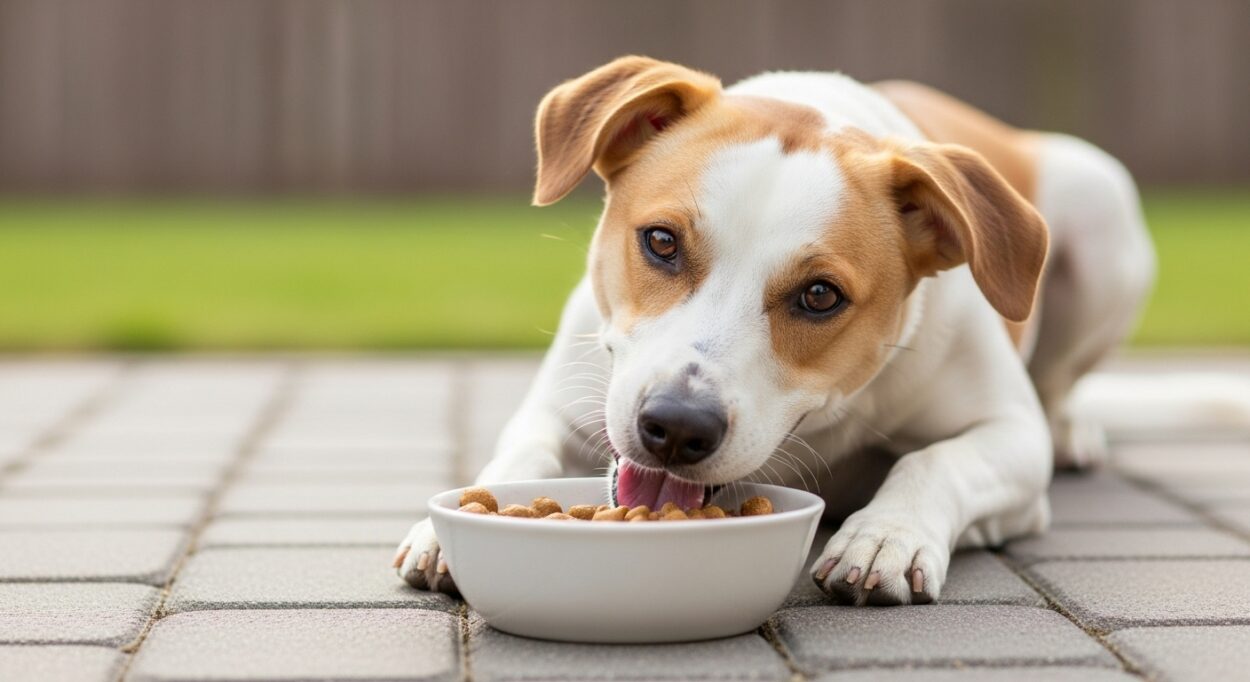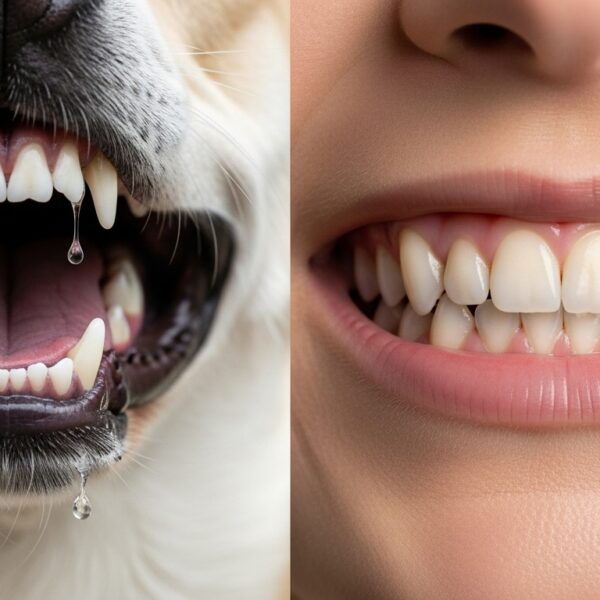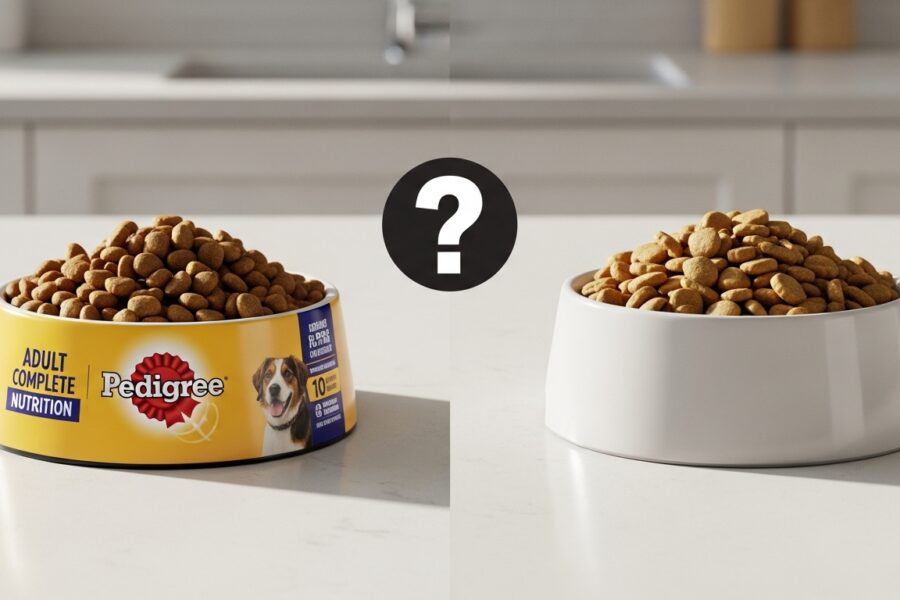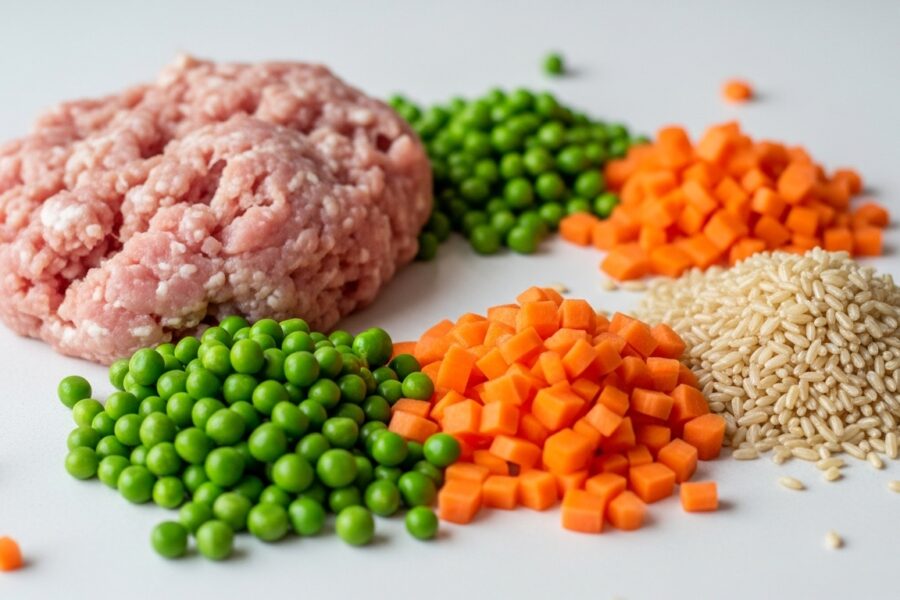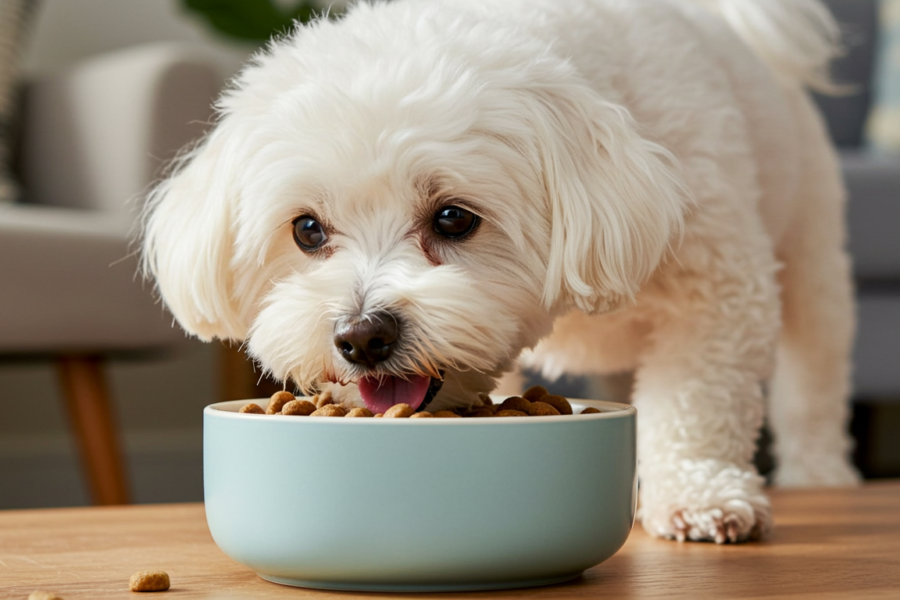Table of Contents
Introduction
Every dog parent knows the anxiety that comes when your pup suddenly seems disinterested in their food bowl. Whether it’s a missed meal or a full day without eating, it’s normal to wonder, “How long can dogs go without food?” Is skipping a meal okay, or is it a sign of something serious? In this guide, we’ll break down the facts about canine fasting, reasons dogs lose their appetite, when to worry, and practical steps you should take as a responsible pet owner.
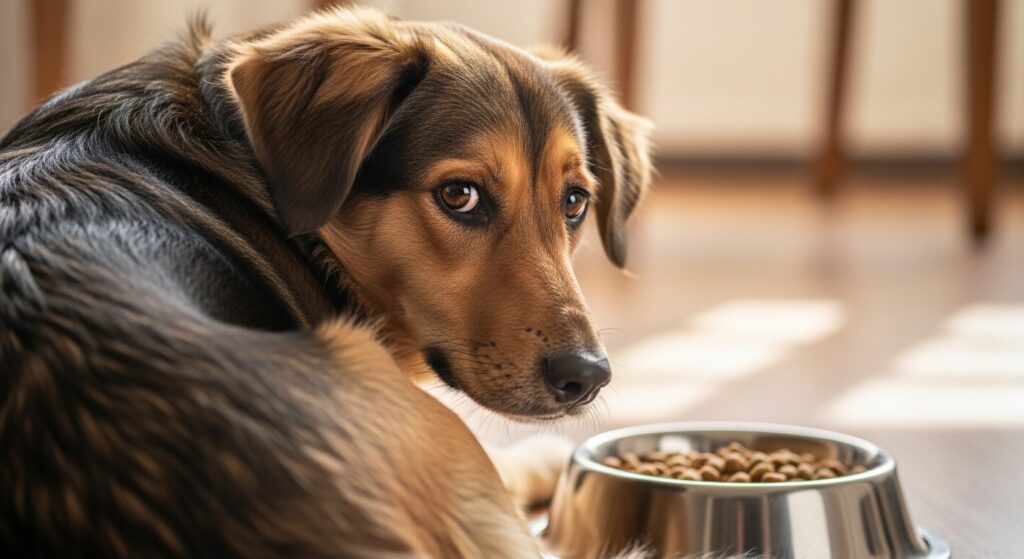
How Long Can a Healthy Dog Go Without Food?
While dogs shouldn’t fast on purpose, a healthy adult dog can generally go up to 3–5 days without eating, although this isn’t safe or recommended. Most dogs will start using stored energy from fat and muscle after missing just one or two meals. However, water is a different story—a dog can only survive a few days (about 2–3) without water.
Key Points:
- 24 hours: Most healthy dogs can skip one meal or go a full day without eating, usually without any major health risk.
- 2–3 days: Appetite loss becomes concerning, especially if your dog isn’t drinking water.
- 3–5 days: By this point, serious health issues (like organ damage) can arise—always seek a vet’s advice if your dog hasn’t eaten in over 48 hours!
Puppies, Seniors, & Sick Dogs: Extra Caution Needed
- Puppies: Young puppies have tiny bodies and high energy needs. Even one missed meal can quickly lead to low blood sugar (hypoglycemia), which is dangerous. Call your vet if a puppy goes more than 12–24 hours without eating.
- Seniors or Sick Dogs: Dogs with chronic illnesses, those on medication, or seniors should never go longer than 24 hours without eating—call your vet for advice.
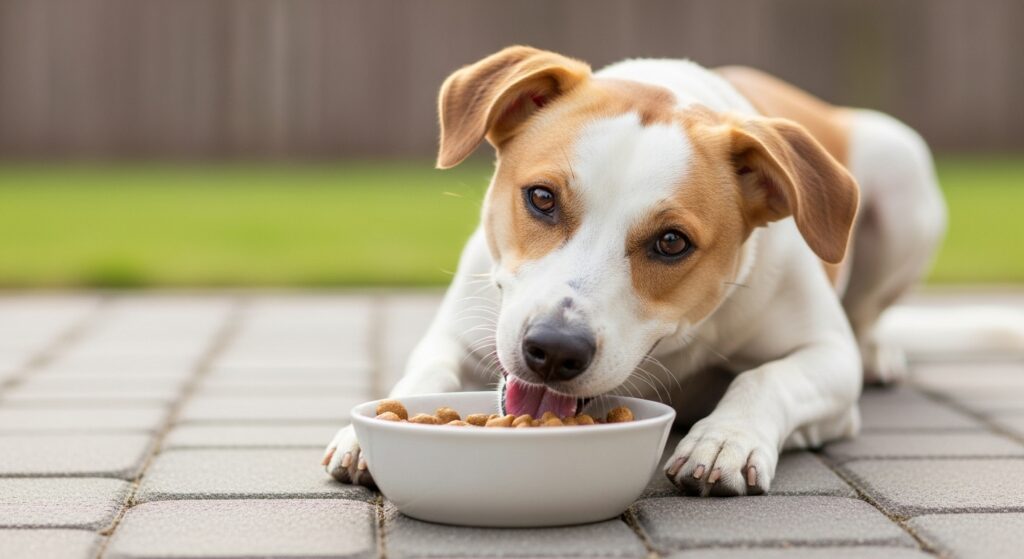
Common Reasons Dogs Stop Eating
If your dog turns their nose up at food, don’t panic! There are many reasons dogs lose their appetite, including:
- Minor Illness: Like people, dogs get upset stomachs, mild fevers, or stress.
- Dental Problems: Sore gums, a broken tooth, or mouth pain make eating hard.
- Change in Routine: Moving, travel, new food, or loud noises can stress dogs out.
- Medication Side Effects: Some medicines suppress appetite.
- Serious Illness: Conditions like kidney disease, pancreatitis, internal obstructions, or even cancer can cause lasting appetite loss.
Tip: Track any other symptoms—vomiting, diarrhea, unusual lethargy, or refusal to drink water are all red flags needing urgent attention.
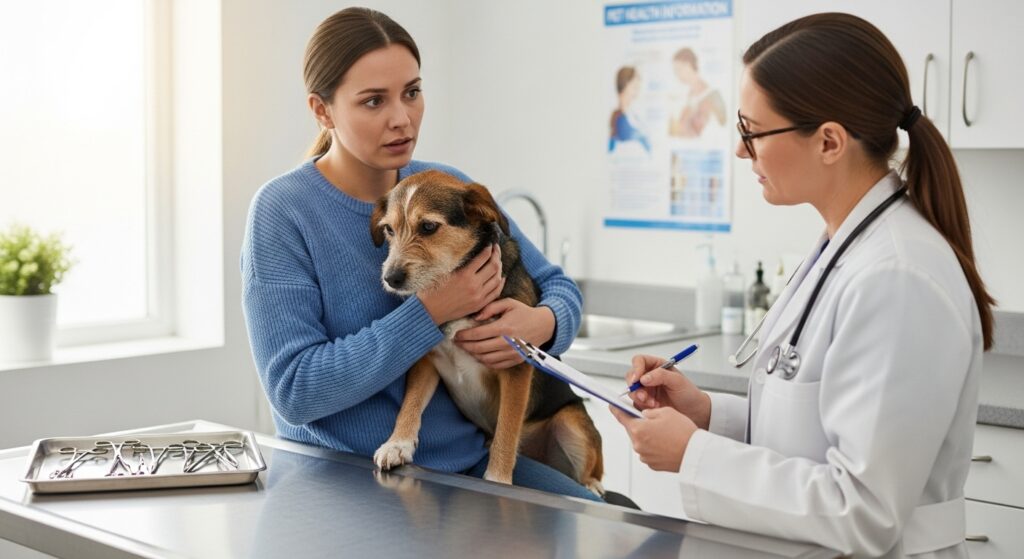
What Should You Do If Your Dog Stops Eating?
If your dog isn’t interested in food, try these home tips to encourage eating, but keep an eye on any concerning signs:
- Check for Obvious Causes: Has your dog gotten into trash? Changed food brands?
- Offer Tasty Food: Try warmed-up wet food, chicken and rice, or a sprinkle of low-sodium broth.
- Reduce Stress: Feed in a quiet, familiar place and avoid sudden changes.
- Check Their Mouth: Look for broken, swollen, or bleeding gums.
- Monitor Water Intake: Make sure your dog is still drinking water.
When to Call the Vet:
- Your dog refuses all food for more than 24–48 hours
- Vomiting or diarrhea is present
- Lethargy or dehydration (gums feel dry, skin doesn’t spring back)
- Puppies, very small, or elderly dogs miss more than one meal
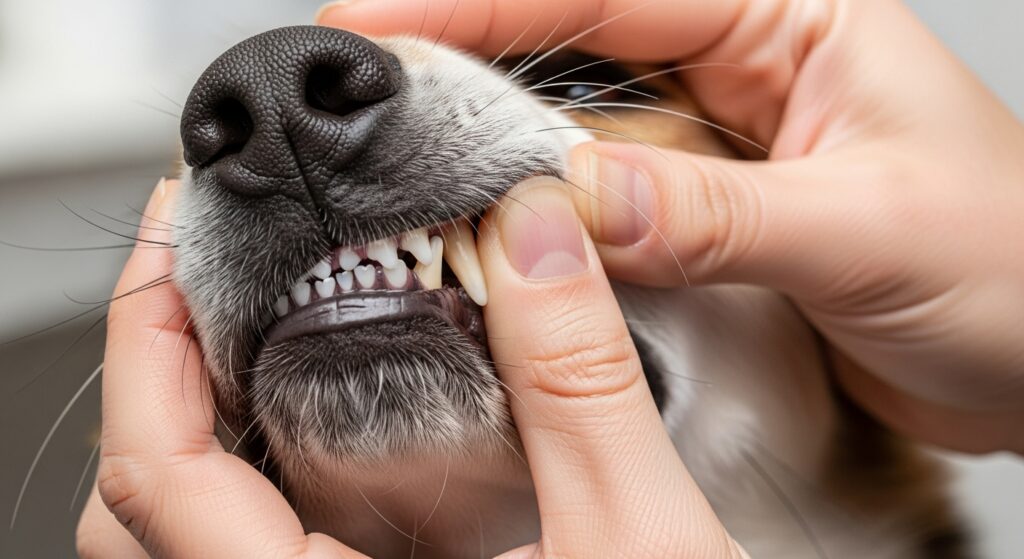
Risks of Prolonged Fasting
Going too long without food leads to:
- Dehydration
- Liver damage (especially in small breeds)
- Muscle loss and weakness
- Life-threatening complications in puppies and sick/senior dogs
Never wait more than 48 hours—dogs are tough, but malnutrition and dehydration progress quickly!
How Much Does Dog Training Cost? A Complete Price Guide
How Can You Prevent Appetite Loss in Dogs?
- Keep vaccinations up-to-date
- Offer a balanced, appealing diet and avoid sudden food changes
- Establish a feeding routine
- Monitor dental health and schedule checkups
- Reduce home stressors (noise, strangers, schedule disruptions)
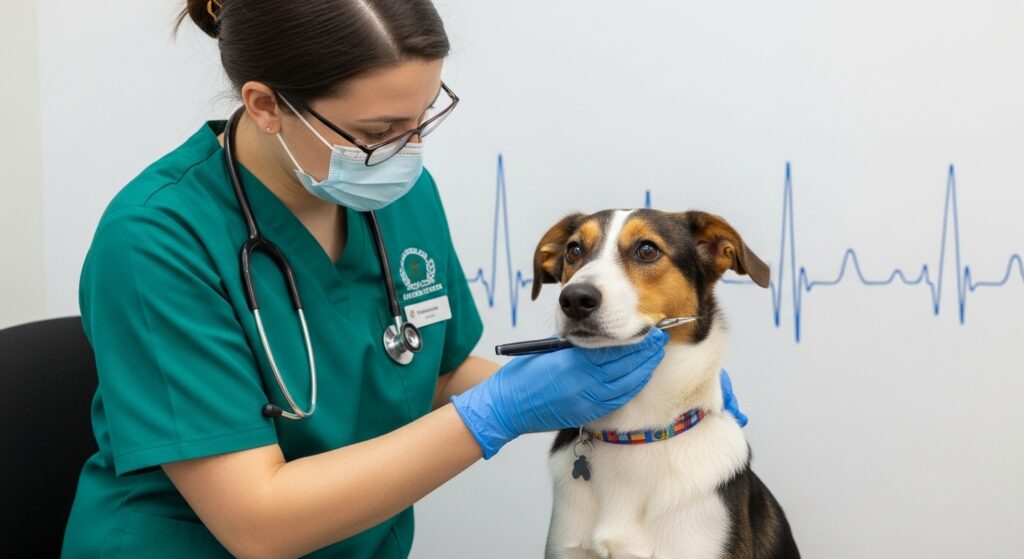
FAQs: How Long Can Dogs Go Without Food?
1. Can a dog starve itself?Healthy dogs rarely starve themselves. If your dog refuses all food for more than two days, get veterinary help.
2. What’s more dangerous: missing food or water?Lack of water is far more dangerous. Dogs can survive longer without food than without water.
3. My dog hasn’t eaten, but is drinking water. Is it less serious?It’s somewhat less urgent, but any dog who skips meals for more than 48 hours still needs a vet’s attention.
4. Should I “wait it out” if my dog isn’t eating?No—always contact your vet if there’s no improvement after 24–48 hours, or sooner for puppies and ill dogs.
5. Can home remedies help before calling the vet?Offering bland food or appetite stimulants sometimes works, but never force-feed your dog. Always consult a vet if in doubt.
Conclusion
It’s scary when your best friend refuses to eat—but knowing the facts helps you make smart decisions. Healthy dogs can sometimes skip a meal, but never ignore more than a day or two without food (or any lack of water). When in doubt, call your veterinarian—they’re always happy to help keep your pup safe and healthy!

